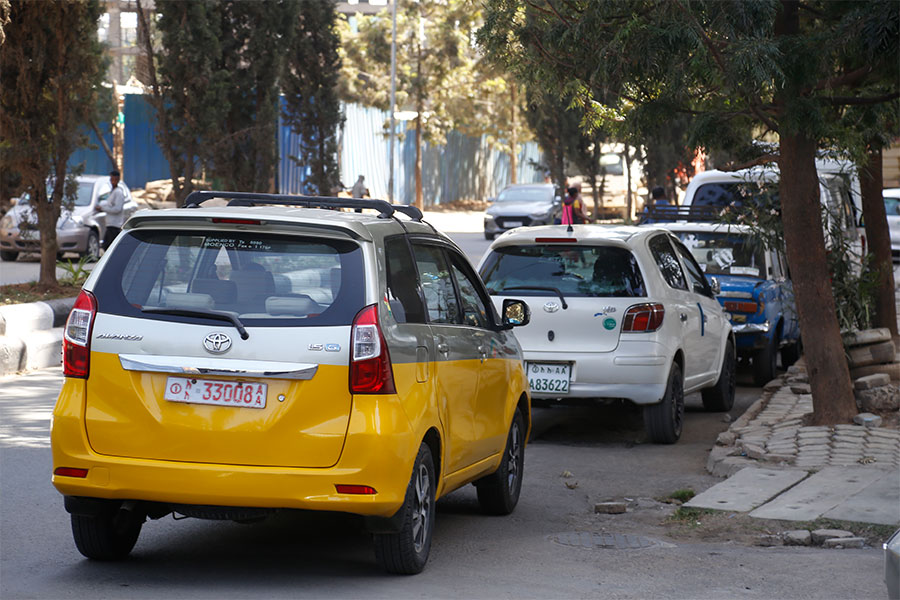
Featured | Mar 26,2022
Sep 10 , 2021
By Yehualashet Tamiru
Egyptian companies working in the embattled Tigray Regional State are said to be formally instituting an international arbitration proceeding against the Ethiopian government over the disruption or production and the loss of around 40 million dollars. This comes on top of the much-publicised dispute between the two countries over the filling of the Grand Ethiopian Renaissance Dam (GERD) over the Nile. Egypt is using all possible means to pressure the government: diplomacy and perhaps even proxy war. Now, they are carving yet another mechanism to put fire on Ethiopia.
This claim of Egyptian companies located in the embattled region of Tigray should not be seen differently from the disagreement over the GERD. This two-edged international claim aims to gain political advantages for the Egyptian government and economic benefits for private investors.
What would be the possible arguments by the investors?
It is possible to guess, if not exact, that the main claim of the investors would be Ethiopia’s government failure to provide full security and protection and fair and equitable treatment right that is accorded under the Ethio-Egypt Bilateral Investment Treaty (BIT).
The second article of the BIT states that “investment of investors of each Contracting Party shall at all times be accorded fair and equitable treatment and shall enjoy adequate protection and security in the territory of the other Contracting Party. Neither Contracting Party shall in any way impair by unreasonable or discriminatory measures the management, maintenance, use, enjoyment, or disposal of investment in its territory of investors of the other Contracting Party.”
Full protection and security, also known as constant protection and security, is one of the treatment standards accorded to foreign investors. Full protection and security right have been interpreted to constitute the host state's obligation to protect the investment from any adverse effects that stem from the host state itself or from private parties.
The OECD working paper states that this standard applies when the foreign investment has been affected by civil strife and physical violence. The obligation of vigilance has been considered a standard deriving from customary international law.
In the infamous case between AMT v. Congo the Tribunal, in connection to full protection and security standards, it was noted that the obligation incumbent upon the host state is an obligation of vigilance. The host state, as the receiving country of investments made by a foreign investor, in this case an American company, should take all measures necessary to ensure the full enjoyment of protection and security of its investment. The host state must show that it has taken all measures of precaution to protect the investment of AMT on its territory.
In this standard, the main obligation of the host-state is not intended to cover any damage of an investors’ investment but extends only to protection from physical integrity of an investment against interference by use of force from third parties. This is well noted in the Saluka Investments vs. Czech Republic case.
This implies that the main obligation of the Ethiopian government in its full protection and security standard is not that of strict liability but an obligation of means. The scope of this is the duty of due diligence in protecting the investment of foreign investors and investment. The government is not obliged to protect the investment of Egyptian companies at all costs, but as far as it clearly shows that the government has taken appropriate due diligence and vigilance in the protection. It is sufficient enough to be exonerated from liability.
This obligation of means the host state has three main components in connection to full protection and security. Primarily, the duty of the host state to avert any acts of individuals that may harm the investment of foreign investors by making use of its administrative apparatus. The federal government has used most of the visible options, if not all, to bring the rebel group to justice.
Another element is the host state's obligation to apprehended and bring to justice those responsible for the injury. In this regard, the federal government has apprehended some political figures and icons it believes are liable for the rebellion. The last element is the obligation of the host state to make available to foreign investors a judicial and administrative system capable of preventing such acts. In this respect too, all the judiciary and administrative grievance mechanisms were open.
The eighth article of the BIT between Ethiopian and Egypt makes it clear that if the dispute cannot be settled amicably within six months, it may be submitted upon the request of the party concerned either to the competent courts of the Contracting Party, in whose territory the investment was made, or to the International Centre for the Settlement of Investment Dispute (commonly referred as ICSID).
The investors, rather than submitting their grievance to the domestic courts, preferred international arbitration. Interestingly, they choose this path in the absence of Fork-in-the-Road provision under the Ethio-Egypt BIT. Fork-in the-Road provision obliges the investors to choose between pursuing its claims against the state either through the arbitration mechanisms provided in the relevant BIT or in local courts or other venues provided for in the relevant contractual mechanism. Thus, in terms of the third element too, the Ethiopian government is not at fault.
Perhaps the most perplexing issue will be to handle the standard fair and equitable treatment (FET). This is principally because the very content of FET is still unknown even amongst the seasoned international arbitrators and academicians. This is well noted in the Alex Genin case, where a tribunal said that while the exact content of the standard is not clear, it understands it to require an international minimum standard that is separate from domestic law, but that is, indeed, a minimum standard. The investors’ lawyers may use this visible loophole to benefit from its ambiguity.
The ongoing conflict between the federal and regional governments is purely an instance of civil war, defined as wars fought within internationally recognised boundaries to establish who will rule. This, among other things, includes fighting for control of a central government and creating a new government or system.
The rebellious entity in Tigray, officially designated by the federal government as a terrorist group, has made it clear that their intention is either to unseat those at the central government or negotiate on their terms over the establishment of a new government and system. Indeed, this rebellious group controls parts of Amhara and Afar regional states.
The Ethiopian government's actions alone can be said to be neither the triggering factor nor solely responsible for the civil war with the rebellion group. This civil war posts the existential issue for the continuity of the country and potential turmoil among its people. In such a situation, the government is fully entitled to take drastic political, economic, and military measures to ensure its continuity as a single political unit and unified county.
What is the other possible reason to bring these cases before the international tribunal by the Egyptian companies?
It is not unrealistic to say that it is likely politically motivated.
International arbitration is an expensive proceeding. In recent years, costs involved in investor-state dispute arbitration have increased rapidly, according to the United Nations Conference on Trade and Development (UNCTAD). It is estimated that both legal and arbitrators’ costs average over eight million dollars for every investor-state dispute and exceeds 30 million dollars in some instances. In responding to this case, the Ethiopian government has to pay lawyers, arbitrators, experts and witnesses, including their travel and living expenses. This is not to mention that document submission involves translation services and costs.
Too often, parties are required to share tribunal and administrative costs equally, even if the investor brought an absurd allegation against the host state and loses the case. For instance, in the case of Plama Consortium vs Bulgaria, the latter's legal fees totalled more than 13 million dollars for defending a claim that was finally found to be based on fraudulent assertions. Although Bulgaria was awarded seven million dollars of these legal fees, it was forced to pay out the remaining cost.
Such proceedings will also cost the Ethiopian government a huge amount of foreign currency. The country is suffering from an acute foreign currency problem, which US economic sanctions against the government have amplified. In the presence of all these situations, exposing the government for lofty international arbitration proceedings puts pressure on Ethiopia’s already overstretched forex problem. Even if Ethiopia emerged as a victor in these cases, it is highly unlikely the tribunal will order the cost of the proceeding and expense incurred by the defendant, Ethiopia, to be covered by the claimant, the investors.
The other hidden agenda in this investor-state dispute settlement maybe its collateral damage to Ethiopia’s investment image. Ethiopia is one of the largest recipients of foreign direct investment (FDI) in Africa. The mere fact that investors from Egypt file an application before international arbitrations sends a signal for potential and existing investors that the country is not business-friendly and the government will not be able to protect foreign investors.
Alaa al-Saqti, deputy head of the Federation of Egyptian Investors Associations, himself said that the dispute between companies and the Ethiopian government downgrades the country’s credit rating. Moreover, Al-Saqty said that in the event the Egyptian companies exit Ethiopia, it is possible to start a business in another African country that does not suffer from the same security and protection problems.
Thus, there is a great deal to be sceptical about the motive of the Egyptian investors in suing the federal government and an even greater need to act accordingly.
PUBLISHED ON
Sep 10,2021 [ VOL
22 , NO
1115]

Featured | Mar 26,2022

Viewpoints | Nov 29,2020

Radar | Jul 13,2025

Radar | Jul 13,2019

Fortune News | Apr 24,2021

Radar | Oct 19,2019

Radar | Mar 02,2019

Films Review | Jul 06,2019

View From Arada | Oct 01,2022

Fortune News | Nov 05,2022

Photo Gallery | 180740 Views | May 06,2019

Photo Gallery | 170931 Views | Apr 26,2019

Photo Gallery | 162034 Views | Oct 06,2021

My Opinion | 137310 Views | Aug 14,2021

Dec 22 , 2024 . By TIZITA SHEWAFERAW
Charged with transforming colossal state-owned enterprises into modern and competitiv...

Aug 18 , 2024 . By AKSAH ITALO
Although predictable Yonas Zerihun's job in the ride-hailing service is not immune to...

Jul 28 , 2024 . By TIZITA SHEWAFERAW
Unhabitual, perhaps too many, Samuel Gebreyohannes, 38, used to occasionally enjoy a couple of beers at breakfast. However, he recently swit...

Jul 13 , 2024 . By AKSAH ITALO
Investors who rely on tractors, trucks, and field vehicles for commuting, transporting commodities, and f...

Nov 1 , 2025
The National Bank of Ethiopia (NBE) issued a statement two weeks ago that appeared to...

Oct 25 , 2025
The regulatory machinery is on overdrive. In only two years, no fewer than 35 new pro...

Oct 18 , 2025
The political establishment, notably the ruling party and its top brass, has become p...

Oct 11 , 2025
Ladislas Farago, a roving Associated Press (AP) correspondent, arrived in Ethiopia in...

Nov 2 , 2025
The National Bank of Ethiopia (NBE) has scrapped the credit-growth ceiling that had s...

Nov 2 , 2025 . By SURAFEL MULUGETA
The burgeoning data mining industry is struggling with mounting concerns following th...

Nov 2 , 2025 . By YITBAREK GETACHEW
Berhan Bank has chosen a different route in its pursuit of a new headquarters, opting for a transitional building instea...

Nov 2 , 2025 . By BEZAWIT HULUAGER
Nib International Bank S.C. has found itself at the epicentre of a severe governance...